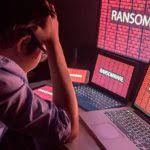The Accidental Hero Marcus Hutchins and the Fall of WannaCry.
Chaos reigns as the ransomware cripple’s essential services and industries. The damage escalates, estimated at billions of dollars worldwide. But just as the world braces for far worse, something extraordinary happens: the seemingly unstoppable malware halts in its tracks. Confusion turns into collective relief, and a question hangs in the air what just happened? The answer lies with an unlikely savior: a young British cybersecurity researcher named Marcus Hutchins.
From Bedroom to Battlefield
Marcus Hutchins, better known by his online alias MalwareTech, was far from the image of a traditional hero. At just 22 years old, he was a modest, self-taught cybersecurity researcher working from the quiet confines of his bedroom in the seaside town of Ilfracombe, England. Hutchins had gained a reputation within the cybersecurity community for his diligent work analyzing malware and studying emerging threats. On that day, Hutchins would unwittingly write himself into the history books.
As havoc spread across the digital sphere, Hutchins, like many cybersecurity professionals, began analyzing the WannaCry ransomware. In its code, he noticed something unusual a specific domain name, hidden like a cold trail of breadcrumbs. Hutchins deduced that this domain might serve as a kill switch of sorts, included by the malware’s creators. If the domain were registered, the ransomware might stop functioning. Acting on instinct and curiosity, Hutchins quickly registered the domain.
What happened next stunned the world. Registering the domain did, in fact, trigger the kill switch. By activating it, Hutchins had inadvertently stopped the global WannaCry outbreak dead in its tracks.
An Unlikely Hero
News of Hutchins feat spread like wildfire. In the span of a single day, he went from an obscure researcher to an international celebrity. Headlines hailed him as a hero who had saved the world from one of the largest ransomware attacks in history. Governments, cybersecurity agencies, and ordinary people expressed gratitude for his quick thinking. British authorities recognized his contribution, and even Queen Elizabeth II sent him a letter of commendation.
Despite the praise, Hutchins was stunned by the media frenzy. His newfound fame was entirely accidental a far cry from the quiet life he was used to. He had seen the opportunity, acted decisively, and solved a global crisis. Yet, in his mind, he had merely been doing his job.
A Hero’s Fall from Grace
While the world showered Hutchins with accolades, a dramatic turn of events awaited him. Just months later, in August 2017, while attending a cybersecurity conference in Las Vegas, Hutchins was arrested by United States authorities. He was accused of being involved in creating and distributing Kronos, a banking malware designed to steal financial information.
The arrest sent shockwaves through the cybersecurity community. Many viewed the charges as a cruel twist of fate for a man hailed as a defender against WannaCry. Others speculated that his background in researching and understanding malware may have led to inadvertent associations with criminal elements.
Over time, the case against Hutchins grew murky, and after a long legal battle, the U.S. government dropped the most severe charges, sparing him from catastrophic consequences. However, the shadow of the incident left an indelible mark on his personal and professional life, forever complicating his journey from accidental hero to global icon.
Lessons From WannaCry
The saga of Marcus Hutchins is a powerful testament to the complexities of cybersecurity and the ever-present dangers lurking in the digital age. WannaCry exposed vulnerabilities in legacy systems, exploiting a Microsoft Windows security flaw that had been leaked months earlier by a group known as the Shadow Brokers. Despite the availability of a patch, thousands of organizations had failed to update their systems, leaving themselves open to attack.
The incident underscored the critical importance of maintaining robust cybersecurity practices, particularly in an era where technological interdependence is higher than ever. Systems must be updated, vulnerabilities must be patched, and cyber hygiene must be prioritized to prevent similar crises in the future.
At the same time, Marcus Hutchins story shed light on the indispensable role of cybersecurity researchers. These unsung heroes operate on the frontlines of a digital battlefield, working tirelessly to understand, mitigate, and neutralize emerging threats. Hutchins’ inadvertent discovery and activation of the kill switch may have been a stroke of chance, but the expertise and analytical mindset that allowed him to identify the solution are the products of years of dedication to his craft.
The Thin Line Between Heroism and Vulnerability
The case of Marcus Hutchins also serves as a stark reminder of the blurred lines in the world of cybersecurity. Very often, researchers delve deep into the same techniques and tools used by attackers, walking a perilous tightrope between contributing to the greater good and potentially crossing ethical or legal lines intentional or otherwise. Hutchins’ story captured this tension in sharp relief, leaving behind an unresolved debate about the nuances of responsibility in the field of cybersecurity.
A Legacy of Vigilance
Years later, the impact of the WannaCry attack continues to reverberate, both as a cautionary tale and as a triumphant moment for digital defenders. The incident drove global awareness about the importance of cybersecurity and prompted organizations to strengthen their defenses against ransomware and other malicious software.
As for Marcus Hutchins, his act will be remembered as a symbol of how individual expertise can counteract global crises. Even from the most unassuming of places a bedroom in a seaside town a single individual can wield the power to protect the world from a host of unseen threats. However, his story also reminds us of the fine line between vulnerability and resilience, and the unpredictability of life in the digital age.
Regardless of the controversy that later ensued, Marcus Hutchins accidental heroism during the WannaCry epidemic stands as one of the greatest examples of human ingenuity in the face of a technological calamity. In the ever-evolving landscape of cybersecurity, his story will remain a cornerstone of hope, caution, and vigilance.







